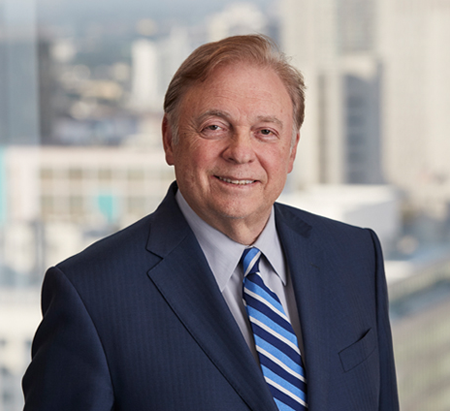$150K ABE grant will help ABA facilitate pro bono immigration work

Image from Shutterstock.
Stephen N. Zack knows firsthand how tough it is on a kid to be separated from their parents. When he was 13, his family tried to flee Cuba—and got taken off a plane by a Cuban spy agency. Each member of the family was held in a separate room overnight. They would be reunited the next morning and eventually permitted to leave Cuba, but he didn't know that at the time.
“It was for a very short period of time, [but] it was tremendously painful,” says Zack, who went on to become the ABA’s 2010-11 president, the president of the American Bar Endowment and a partner at Boies Schiller Flexner in Miami. “We didn’t know whether we’d ever see each other again.”
 Photo of Stephen N. Zack from Boies Schiller Flexner.
Photo of Stephen N. Zack from Boies Schiller Flexner.That’s one reason Zack started pushing this month for the ABA to increase its pro bono work with asylum-seekers and separated immigrant families. During the 2019 ABA Midyear Meeting on Friday in Las Vegas, the ABA’s Board of Governors approved a one-time American Bar Endowment Opportunity grant of $150,000 from the ABE to the Commission on Immigration. The money is expected to fund the hiring of a pro bono coordinator to manage what Zack hopes will be many new volunteers.
Having counsel makes an enormous difference in immigration court, Zack says. A study in New York found that when nonjailed immigrants aren’t represented, only 13 percent win their cases. With representation, their success rate shoots up to 74 percent. (Both rates are lower for immigrants held in detention.) Even if the immigrant doesn’t have a case to stay, Zack says, representation will help get that case finished sooner and more cheaply.
“I woke up [about 10 days ago] thinking about it and called Bob Carlson and Judy Perry Martinez and said, ‘We can do something about this,’ ” says Zack, naming the current ABA president and president-elect. “We have lots of resources if we get people out of their silos to resolve these issues.”
Zack envisions mobilizing a lot of different arms of the ABA whose lawyers are well-placed to help. In addition to the Commission on Immigration, he says the Senior Lawyers Division can contribute experienced lawyers who have the time to give back, and the Commission on Hispanic Legal Rights and Responsibilities may have an interest in the subject matter. Zack is also hoping that the Hispanic National Bar Association, in which he’s been active, could help with translators so that attorneys aren’t discouraged from volunteering by a language barrier.
Although immigration currently is a key political issue, Zack says this is not a political move but an attempt to meet a humanitarian need.
“It happens to be the major humanitarian issue facing the country right now,” he says. “And this doesn’t have anything to do with whether you like the wall or don’t like the wall. There are thousands and thousands of people waiting for due process.”
Follow along with ABA Media Relations’ full coverage of the of the 2019 ABA Midyear Meeting and the ABA Journal’s news stories.



